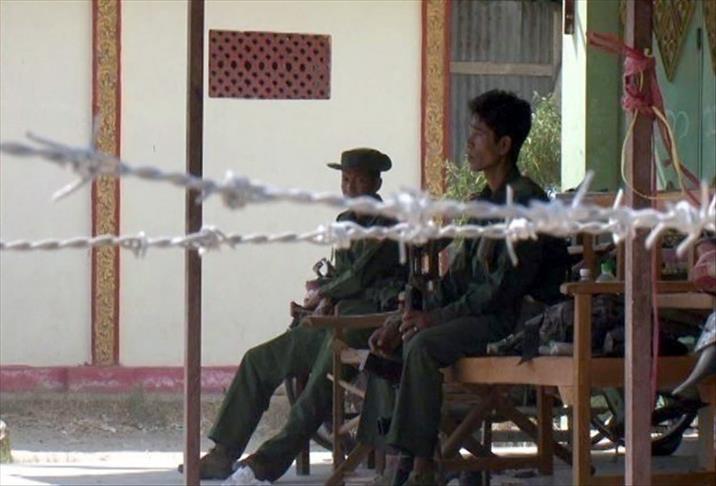
By Joshua Carroll
YANGON, Myanmar
A leading expert on Myanmar’s ethnic insurgencies has dismissed a recent breakthrough in national peace talks as "hot air," hitting out at international observers who have lauded the agreement on a draft cease-fire text.
Myanmar’s government and 16 armed ethnic groups agreed Monday on the wording in the text of a national cease-fire agreement, a move a United Nations envoy described as a "milestone in Myanmar's history."
But Bertil Lintner, a strategic analyst and journalist who has written several esteemed books on Myanmar, told The Anadolu Agency that widespread optimism about the agreement is undeserved.
"All that's been achieved is that the usual suspects have drafted the text of an agreement which they are going to present to the armed ethnic groups later this month or in May," he said. "It's nothing more than that."
The government’s Union Peacemaking Working Committee (UPWC) and the ethnic Nationwide Cease-fire Coordination Team (NCCT) have not officially signed the agreement yet, and rebel negotiators say they need to get approval from their leaders first. The wording of the agreement has not been made public.
The promise of a cease-fire to end civil conflicts that have raged for decades is part of a package of political reforms. President Thein Sein, a former general who came to power when the junta stepped aside in 2011, has pledged to ink a deal before an election later this year.
But there are already signs that the peace talks, which began almost three years ago, will run into trouble after the agreement is signed.
The leader of the cease-fire coordination body said Wednesday that the army’s insistence that ethnic groups follow the controversial 2008 constitution could derail talks.
"The 2008 constitution is not a democratic constitution, and there are no rights for ethnic people in it," Naing Han Thar told Radio Free Asia.
The military-drafted charter, passed following a rigged referendum, demands that ethnic insurgents merge with Myanmar’s army or disarm.
The insistence on following the charter is part of six demands that military negotiators have insisted are red lines.
Lieutenant General Myint Soe of the Ministry of Defense told a press conference Tuesday: "We will keep our six points. If our six points are accepted, there will be permanent peace in the country."
Despite the difficulties ahead, Monday’s agreement was met with a chorus of optimism, particularly from groups affiliated with donors involved in the peace process. UNICEF said the agreement "could be the dawn of a new time of progress for the most disadvantaged children in Myanmar."
Lintner, who has on several previous occasions poured cold water on ostensibly good news in Myanmar, has a different outlook.
"Those foreign so-called 'observers' are off the wall," he said.
Anadolu Agency website contains only a portion of the news stories offered to subscribers in the AA News Broadcasting System (HAS), and in summarized form. Please contact us for subscription options.







